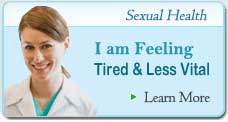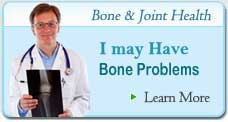» Anti-Aging
» Bones Joints & Muscle Health
- 5 Proven Remedies for Plantar Fasciitis
- Chair Yoga for Seniors: Keys to Maintaining Flexibility
- Restless Leg Syndrome Causing You Pain & Lost Sleep? Learn What IS Known About RLS
- Must Know Lyme Disease Information - You Might Be Surprised To Find Out...
- How To Prevent Falls And Reduce Accidents As We Age
» Cardiovascular Health
» Chronic Pain Management
» Dental Health & Wellness
» Digestive Health Problems
» Health Care
» Mental Health
» Sexual Health
» Skin Care

Restless Leg Syndrome Causing You Pain & Lost Sleep? Learn What IS Known About RLS
Restless leg syndrome (RLS) is a condition in which your legs feel extremely uncomfortable, typically in the evenings while you’re sitting or lying down. It makes you feel like getting up and moving around. When you do so, the unpleasant feeling of restless legs syndrome temporarily goes away.
Restless legs syndrome can begin at any age and generally worsens as you age. Restless legs syndrome can disrupt sleep – leading to daytime drowsiness and make travelling difficult.
A number of simple self-care steps and lifestyle changes may help you. Medications also help many people with restless legs syndrome.
Symptoms
People typically describe restless legs syndrome symptoms as abnormal, unpleasant sensations in their calves, thighs or heels. Sometimes the sensations may be in the arms, often expressed as:
- Crawling
- Creeping
- Pulling
- Throbbing
- Itching
- Pain
- Tugging
- Gnawing
- Burning
Sometimes the sensations seem to defy description. Affected people usually don’t describe the condition as a muscle cramp or numbness. They do, however, consistently describe the desire to move or handle their legs.
It’s common for symptoms to fluctuate in severity, and ocasionally symptoms disappear for periods of time.
Commonly reported patterns.
Common characteristics of RLS signs and symptoms include:
- Onset during inactivity. The sensation typically begins after you’ve been lying down or sitting for an extended period of time, such as in a car, airplane or movie theater.
- Relief by movement. The sensation of RLS lessens if you get up and move. People combat the sensation of restless legs in a number of ways- by stretching, jiggling their legs, pacing the floor, exercising or walking. This compelling desire to move is what gives restless legs syndrome its name.
- Worsening of symptoms in the evening. Symptoms typically are less bothersome during the day and are felt primarily at night.
- Nighttime leg twitching. RLS may be associated with another condition called periodic limb movement disorder (PLMD). PLMD causes you to involuntarily flex and extend your legs while sleeping – without being aware that you are doing it. Hundreds of these twitching or kicking movements may also occur while you’re awake. PLMS is common in older adults, even without RLS, and doesn’t always disrupt sleep. More than 4 out of 5 people with RLS also experience PLMD.
When to see a doctor
Some people with restless legs syndrome never seek medical attention because they worry that their symptoms are too difficult to describe or won’t be taken seriously. Some doctors attribute symptoms to nervousness, stress, insomnia or muscle cramps. But RLS has received more media attention and focus from the medical community in recent years, making more people aware of the condition.
If you think you have RLS, call your doctor.
Causes
In many cases, no known cause for restless legs syndrome exists. Researchers suspect the condition may be due to an imbalance of the brain chemical dopamine. This chemical sends messages to control muscle movement.
Heredity
RLS runs in families in at least half the people with RLS, especially if the condition started at an early age. Researchers have identified sites on the chromosomes where genes for RLS may be present.
Pregnancy
Pregnancy or hormonal changes may temporarily worsen RLS signs and symptoms. Some women experience RLS for the first time during pregnancy, especially during their last trimester. However, for most of these women, signs and symptoms usually disappear quickly after delivery.
Related Conditions
For the most part, restless legs syndrome isn’t related to a serious underlying medical problem. However, RLS sometimes accompanies other conditions, such as:
- Peripheral neuropathy. The damage to the nerves in your hands and feet is sometimes due to chronic diseases such as diabetes or alcoholism.
- Iron deficiency. Even without anemia, iron deficiency can cause or worsen RLS. If you have a history of bleeding from your stomach or bowels, experience heavy menstrual periods, or repeatedly donate blood, you may have an iron deficiency.
- Kidney failure. If you have kidney failure, you may also have iron deficiency, often with anemia. When kidneys fail to function properly, iron stores in your blood can decrease. This, with other changes in body chemistry, may cause or worsen RLS.
Treatment and drugs
Sometimes, treating a underlying condition, such as an iron deficiency or peripheral neuropathy, greatly relieves symptoms of restless legs syndrome. Correcting the iron deficiency may involve taking iron supplements. However, take iron supplements only with medical supervision and after your doctor has checked your blood-iron level.
If you have RLS without any associated condition, treatment focuses on lifestyle changes, and if those aren’t effective, medications.
Medication therapy
Several prescription medications, most of which were developed to treat other diseases, are available to reduce the restlessness in your legs. These include:
- Medications for Parkinson’s Disease. These medications reduce the amount of motion in your legs by affecting the level of the chemical messenger dopamine in your brain. Two drugs ropinirole (Requip) and pramipexole (Mirapex) are approved by FDA for the treatment of RLS.
- Medications of epilepsy. Certain epilepsy medications, such as gabapentin (neurontin ) may work for some people with RLS.
- Opioids. Narcotic medications can relieve mild to severe symptoms, but they may be addicting if used in high doses.
- Muscle relaxants and sleep medications. This class of medications, known as benzodiazepines, helps you sleep better at night. But these medications don’t eliminate the leg sensations, and they may cause drowsiness.
You May Also Find Informative:
Aging Fit - Health Research & Information
Better Health. Energy. Quality.






